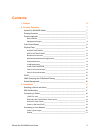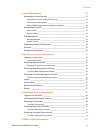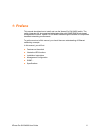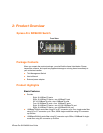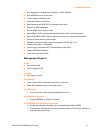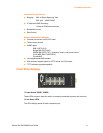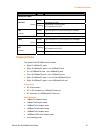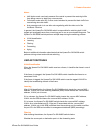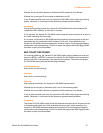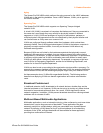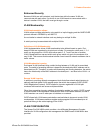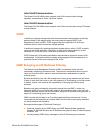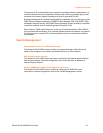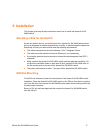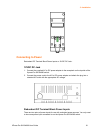2: Product Overview
XPress-Pro SW 94000 User Guide 11
Notes:
Half-duplex mode uses back pressure flow control to prevent the receiving buffer
from being overrun by data from a source node.
Full-duplex mode uses 802.3x flow control standard to prevent fast data traffic from
overrunning slow data traffic.
Auto-sensing mode is in use after auto-negotiating with the other end of the
link.Basic Functions
In general, the Xpress-Pro SW 94000 switch is responsible for switching both VLAN
tagged and untagged frames from a receiving port to one or more transmitting ports. The
Xpress-Pro SW 94000 switch performs multiple steps during the switching process:
VLAN classification
Learning
Filtering
Forwarding
Aging
Below is additional information about tasks that the Xpress-Pro SW 94000 switch
performs during unicast and multicast switching.
UNICAST SWITCHING
VLAN Classification
When the Xpress-Pro SW 94000 switch receives a frame, it classifies the frame in one of
two ways:
If the frame is untagged, the Xpress-Pro SW 94000 switch classifies the frame to an
associated VLAN.
If the frame is tagged, the Xpress-Pro SW 94000 switch uses the tagged VLAN ID to
identify the broadcasting domain of the frame.
Learning
After VLAN classification, the Xpress-Pro SW 94000 switch checks the <source MAC
address, VLAN> pair in the switching database (SDB) to see whether the <source MAC
address, VLAN> pair is known.
If it is unknown, the Xpress-Pro SW 94000 switch inserts the <source MAC address,
VLAN> into the SDB and learns the <source MAC address, VLAN>.
If it is known, the Xpress-Pro SW 94000 switch checks the <source MAC address,
VLAN> for a mismatched port ID. If the port ID associated with the <source MAC
address, VLAN> pair in the SDB is different than the receiving port, the switch modifies
the port ID in the SDB and modifies its management database (MDB) accordingly.
Filtering
After learning the address, the Xpress-Pro SW 94000 switch checks:
Whether the source port or destination port is in the forwarding state.



